Have your anxiety levels gone through the roof lately? Having trouble sleeping? Been gripped by feelings of fear, panic and overwhelm? If so, you are not alone!
The world as we know it has been turned upside down in the last weeks due to the global COVID-19 pandemic and governments around the globe are trying to control the spread of the virus by mandating unprecedented shutdowns.
Kids are home from school, many parents have either lost their jobs or are working while trying to homeschool as well. Some families are facing financial insecurity. Even simple activities like grocery shopping is now fraught with the danger of infection….and there is not a single roll of toilet paper in sight!
I know these are first world problems, and my heart goes out to those who don’t have homes to shelter in or who don’t have enough food to eat. However, I also don’t want to minimize the fact that many people are suffering right now with increased levels of anxiety, fear and loneliness.
At a time when so much is unknown and beyond our control, the only thing we can control is our response to the situation. Although the pandemic has added another level of uncertainty to life, the truth is, life has always been beyond our control.
To make matters worse, when we need a shoulder to cry on or some reassurance, our friends and community can only do so from a distance. No wonder we are all feeling extreme levels of anxiety, restlessness and panic! The good news is that we can enhance our response to stress by using plant medicines.
As time goes on, the initial adrenalin rush in response to the crisis may diminish and we will need more than ever our herbal allies to uplift mood, maintain a positive outlook and process grief. In this article I will outline some of my favorite nervine and adaptogen herbs to use in times of increased (and prolonged) stress and anxiety.
Nervines
Nervines are a class of herbs that act on the nervous system. They can be further sub-divided into two categories: relaxing nervines, like chamomile, and stimulating nervines, like coffee and tea. Since this article is about reducing anxiety and improving sleep, we’ll only be focusing on the relaxing ones.
Relaxing nervines can be further divided into three categories. Gentle relaxing nervines like linden and lemon balm, sedatives and hypnotics like valerian and passionflower and nervine tonics like skullcap and milky oats. This division is arbitrary and many of our most beloved plant medicines overlap into one or more categories.
It is also important to understand that herbs are gentler in effect than pharmaceutical drugs and work in a different way. In Western herbal medicine the actions sedative and hypnotic are not the same as in conventional medicine. Herbal medicine interprets each as the following:
Relaxing Nervine: “a substance that acts on the nervous system and relaxes constricted tissue via the nervous system.’
Sedative: “a substance that reduces activity, particularly in the nervous system and decreases nervous tension.” It may alleviate pain, mild anxiety or spasm and induce sleep.
Hypnotic: “a substance that induces drowsiness and sleep.”
Nervine Tonic: “a substance that strengthens, nourishes and restores the nervous system”
The beauty of herbs is that they may exert one or more actions and can be used in combination with other herbs to enhance and balance desired actions. This is called herbal synergy and explains the increased effectiveness of herbal formulas as opposed to single herbs. For best results for your individual situation and constitution please consult a professional herbalist to guide you.
Relaxing Nervines:
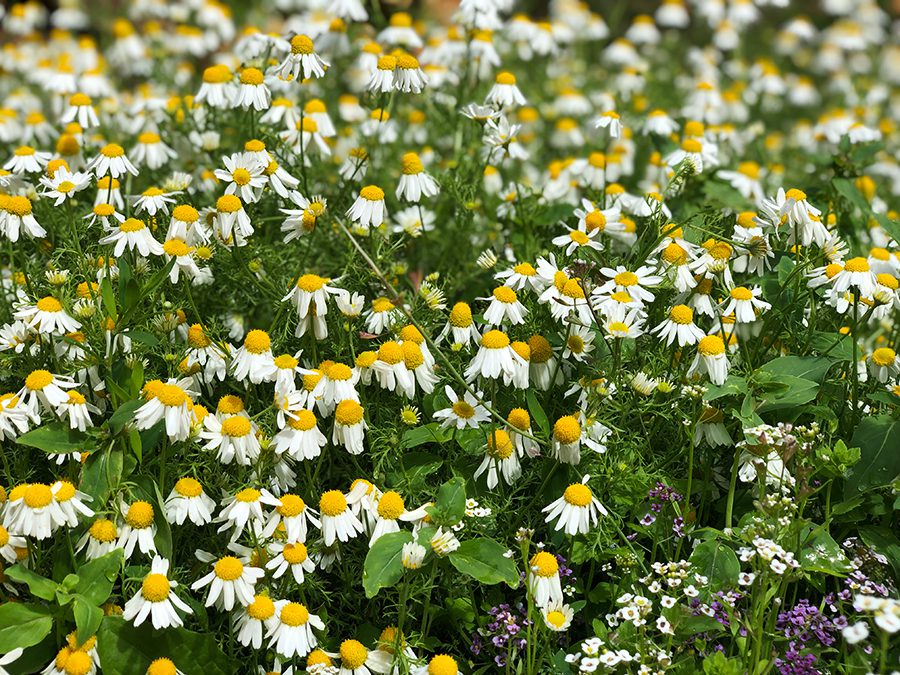
Chamomile
Chamomile (Matricaria chamomilla) is one of the most well-known and beloved nervine herbs and for good reason! A cup of chamomile tea is a safe and gentle way to unwind and relax after a stressful day. Chamomile nurtures our inner child when we are feeling cranky and irritable. Chamomile is also mildly bitter and carminative (reduces spasm in the gut) and will help digestion while it calms and soothes frazzled nerves. Chamomile is used as a hot tea for fevers, anxiety and hysteria. It combines well with catnip, lemon balm and fennel for children’s nervous tummy aches and respiratory complaints. Drinking chamomile tea is like getting a big herbal hug.

Lemon Balm
Lemon Balm (Melissa officinalis) is a great tasting relaxing nervine that also uplifts the spirits with its wonderful aromatic profile. Pair that with its anti-viral activity and we have a great herb for our current times. Lemon Balm is best used fresh (or recently dried) in order to maximize its essential oil content. Lemon Balm is a mild sedative and will help ease your mind and body into restful sleep. Lemon Balm increases the availability of a neurotransmitter in the brain known as GABA. Low levels of GABA in the brain is believed to be associated with anxiety and other mood disorders. Lemon Balm combines well with St John’s Wort for mild depression caused by lack of sunlight in winter (seasonal affective disorder).
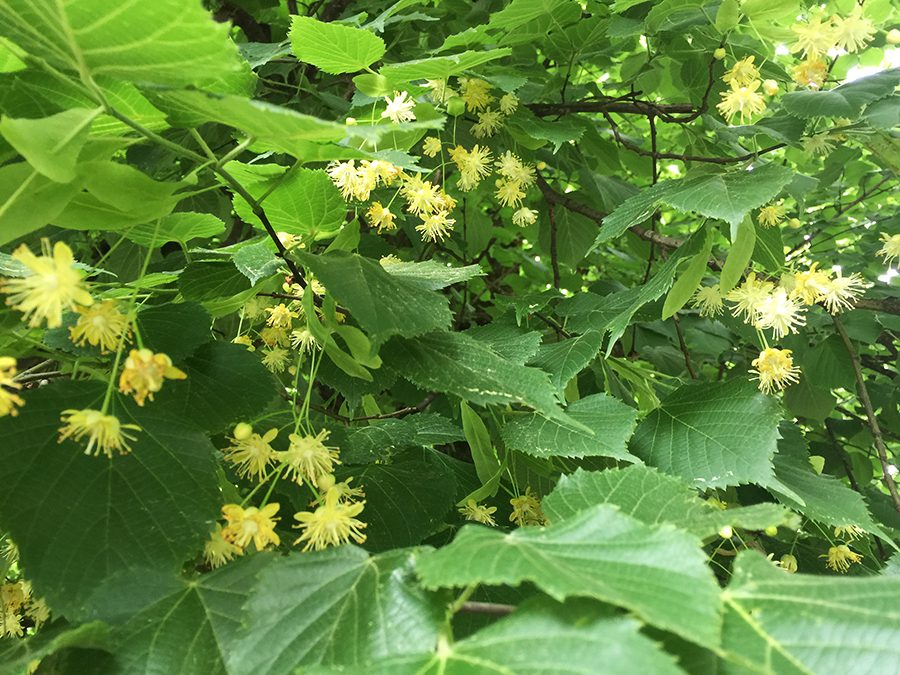
Linden
Linden (Tilia europea) is a popular herbal tisane in Europe which is used to help people who are struggling with anxiety, insomnia and muscle tension. It has a deliciously mild, sweet flavor reminiscent of its fragrant and delicate blossoms. What’s more, linden has mucilaginous and demulcent qualities that makes it useful to soothe tightness and dryness in the chest, throat and sinuses. Linden is gentle enough to use for the whole family and is one of my favorite herbs for children. French herbalist Maurice Messegue recommends a linden bath as the ultimate relaxing sleep aid. Linden is also a cooling and diaphoretic herb that can be beneficial for fevers. It combines well with catnip and elderflower for fevers in children.
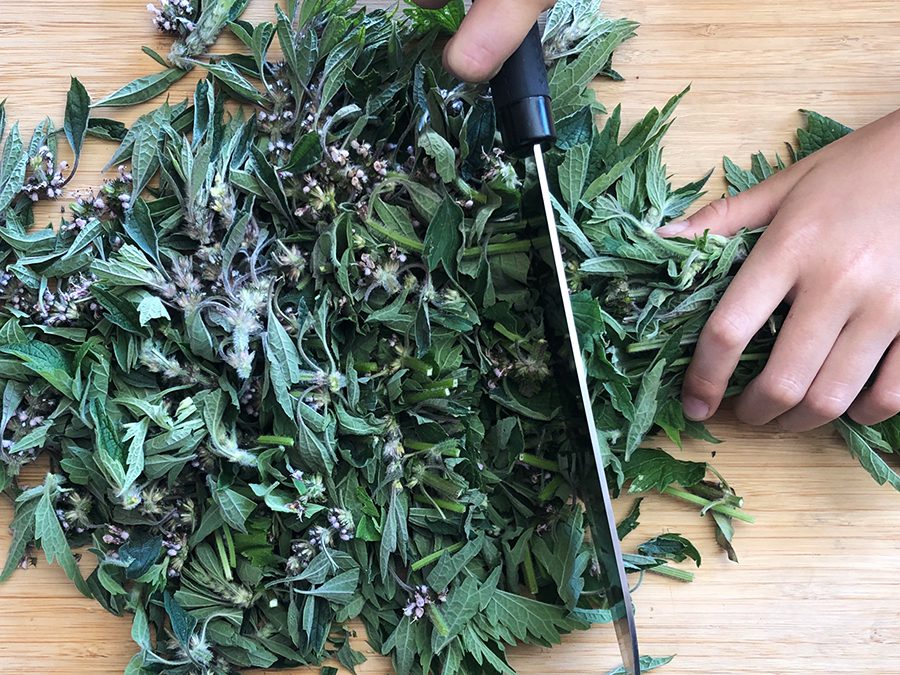
Motherwort
Motherwort (Leonorus cardiaca) is a cooling and relaxing nervine often used for anxiety and women’s reproductive issues.
Motherwort’s scientific name refers to its special affinity for the heart-both physical and emotional. Nicholas Culpeper says “There is no better herb to drive Melancholy Vapors from the Heart, to strengthen it, and make a cheerful blith soul “. Motherwort is useful for anxiety when it is associated with heart palpitations and high blood pressure. As an extremely bitter herb it can aid digestion and stimulate the appetite, especially if loss of appetite is associated with nervousness. I call on Motherwort when I feel like I need a little extra mothering from the herbal world.
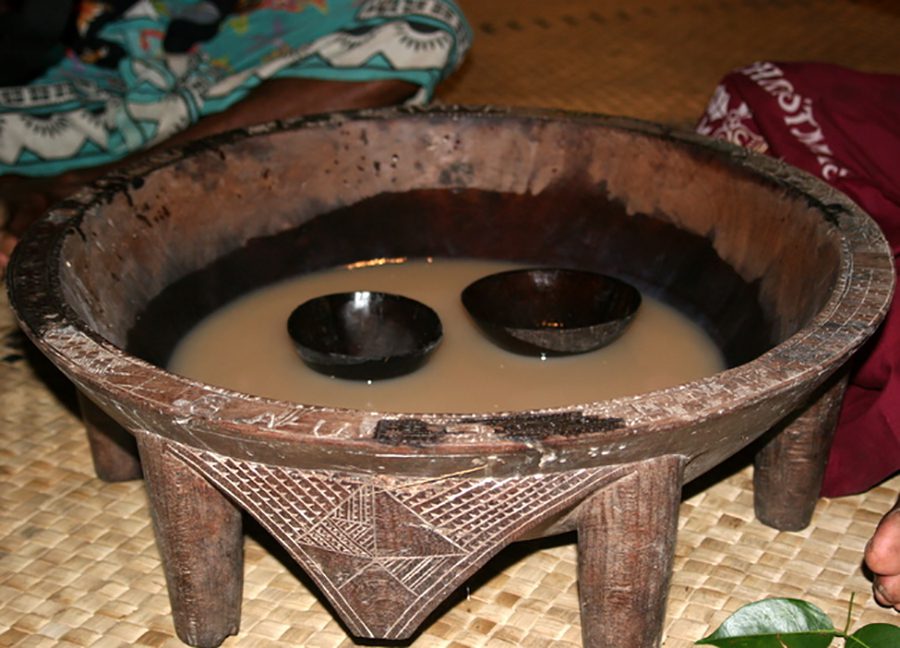
Kava
Kava (Piper methysticum) come to us from the South Pacific islands where it is used as a ceremonial and recreational beverage and is widely known for its ability to imbue drinkers with a peaceful spirit. Kava is similar to Valerian in that it relaxes the musculature, but unlike valerian it will not make you drowsy.
Kava is well known as a powerful anxiolytic and can be used effectively for chronic anxiety (provided that other root factors causing the anxiety are addressed). Some naturopaths and herbalists use it for weaning off benzodiazepines (please do not do this without proper professional guidance and medical advice!). Kava is in the pepper family and has a strong taste and numbing effect on the mouth. It is not recommended during pregnancy and may cause liver toxicity, use with caution!
Herbal Sedatives and Hypnotics
These herbs are for those times when you need something a little stronger than simple unwinding. Sedative herbs calm down the nervous system and hypnotic herbs can help ensure a good night’s sleep and make you drowsy.
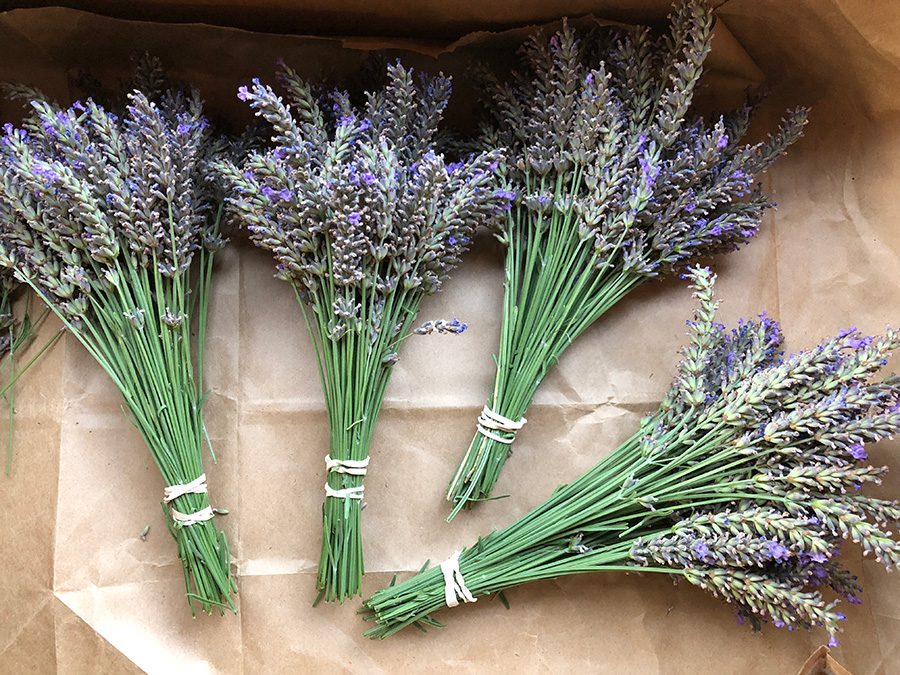
Lavender
Lavender (Lavandula officinalis) is an old-time favorite herb that is under-used in my opinion. A small amount in an herbal tea or tincture blend can really tone down those anxious feelings. A few drops of lavender essential oil used in a bath, body oil or diffuser will instantly calm and relax and help promote a good night’s sleep. Lavender interacts with the neurotransmitter GABA to calm nervous system activity and reduce feelings of anxiety, agitation and restlessness. Lavender is a mild sedative and hypnotic and will prepare the body and mind for a good night of sleep. It is also helpful combined with Lemon Balm and St Johns Worts to help with mild depression.
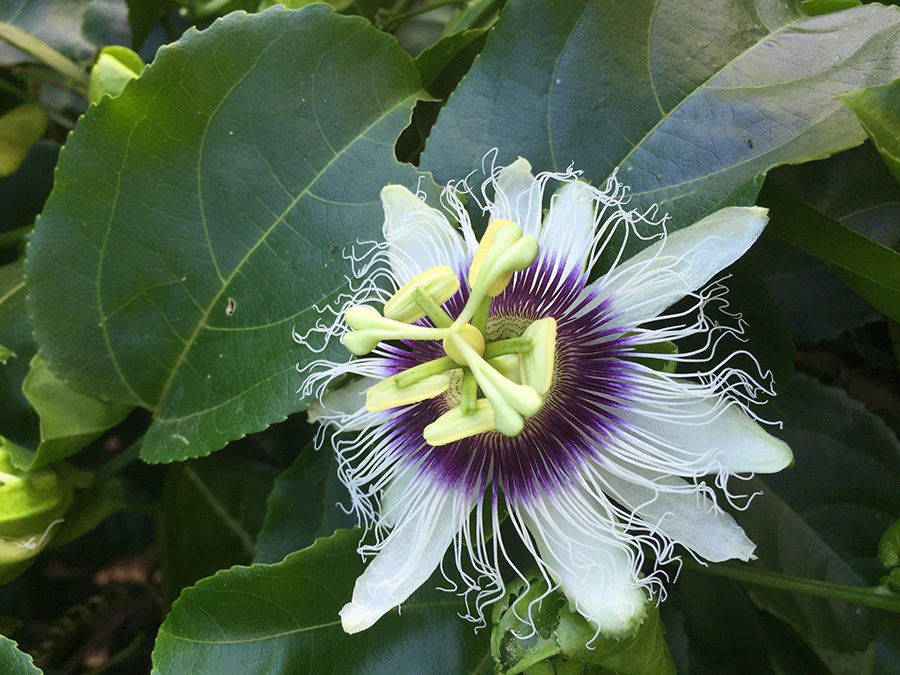
Passionflower
Passionflower (Passiflora incarnata) is one of my favorites for calming the mind and helping with anxiety. Passionflower can promote a restful sleep, especially if sleeplessness is caused by an overactive mind with circular thoughts. Passionflower can act like an off switch to the mind and is suitable for people who are constantly mulling things over and over again. For children it can be helpful in panic attacks. Passionflower was traditionally combined with hops and valerian and these three herbs work synergistically to shorten the time it takes to fall asleep and to lengthen the duration of sleep.
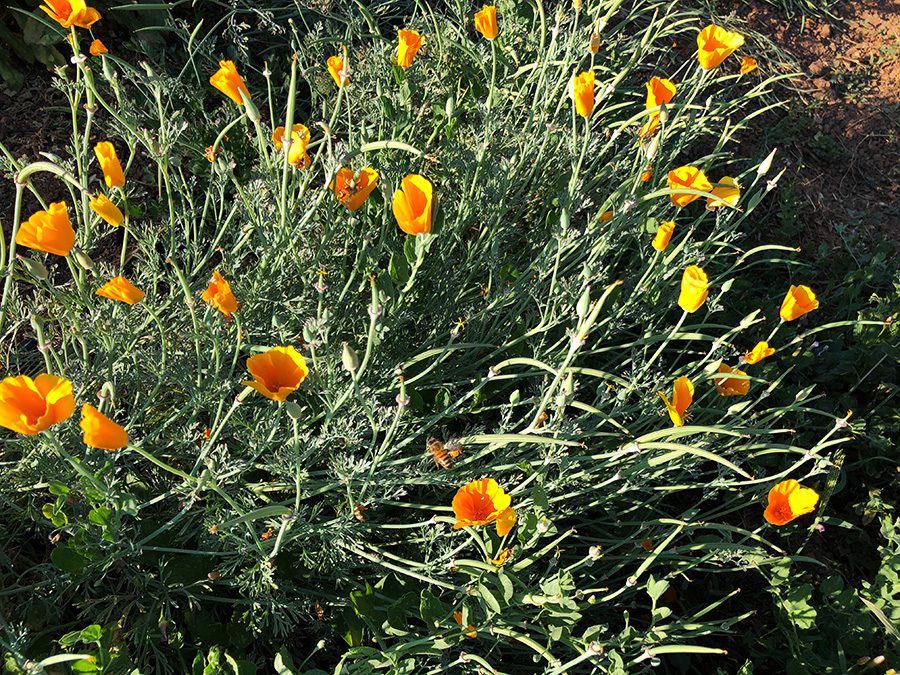
California Poppy
California Poppy (Eschsoltzia californica) is a sedative and hypnotic that also has antispasmodic and pain-relieving properties. California Poppy, unlike its narcotic cousin the Opium Poppy, is safe and gentle enough to use with children. In fact, it is almost specific for children who can’t sleep due to restless anxiety and hyperactivity. California Poppy is also a nervine tonic that nourishes the entire nervous system.
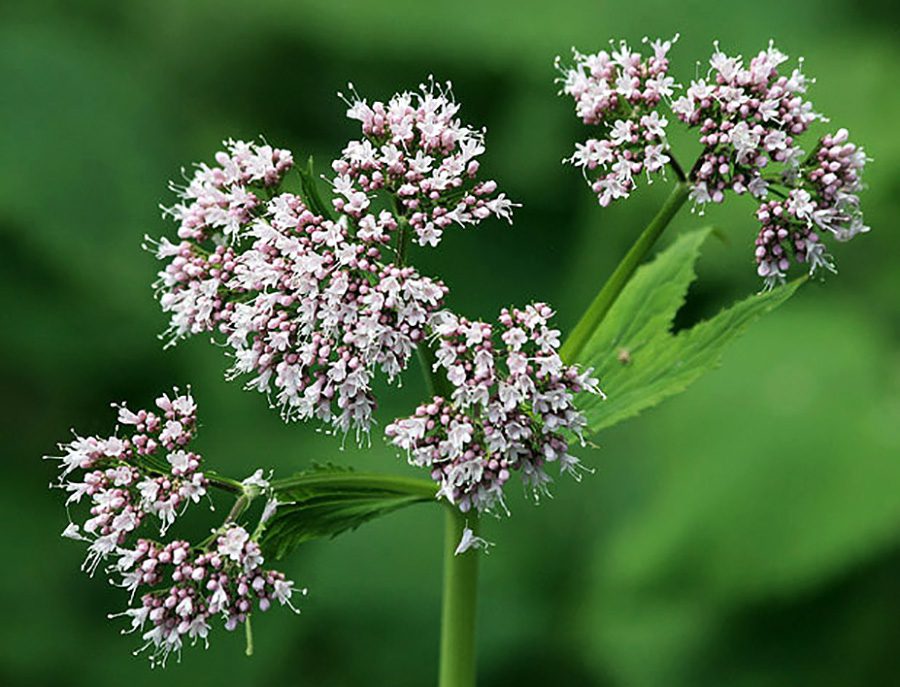
Valerian
Despite valerian’s (Valeriana officinalis) distinctive odor, it is an excellent sedative herb that also relaxes the musculature. Valerian is great for people who can’t sleep because they are holding tightness and tension in their bodies. Herbalist Paul Bergner suggests giving valerian in titrated doses, for example one dose an hour before bed, another does thirty minutes before bed and another dose right before bed. That way we can get the cumulative effect of the herb for increasing relaxation and sedation. Please be aware that about ten percent of the population have the opposite reaction to valerian, where it causes stimulation rather than sedation!
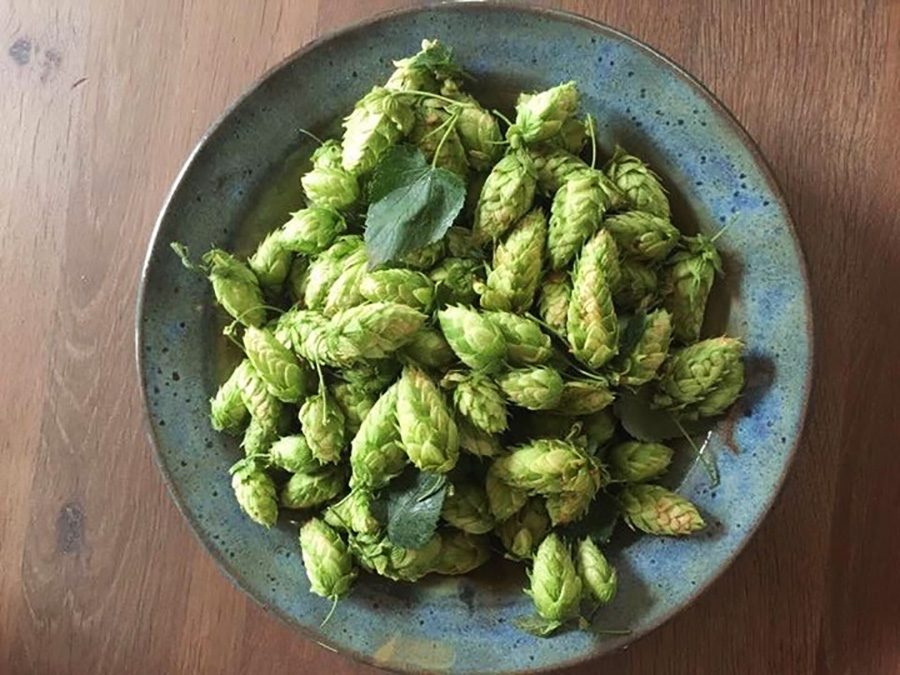
Hops
Hops (Humulus lupus) are used for their bitter flavor in beer but they are also used for their sedative and hypnotic actions in herbal medicine. Hops contains lupulin, the fine yellow resinous substance of the female flowers, which induces sleep and quiets nervous irritation. Hops combines well with valerian and studies have shown that the combination works within an hour for falling asleep. Hops may exacerbate depression and should be avoided in those people who suffer from depression.
Nervine Tonics
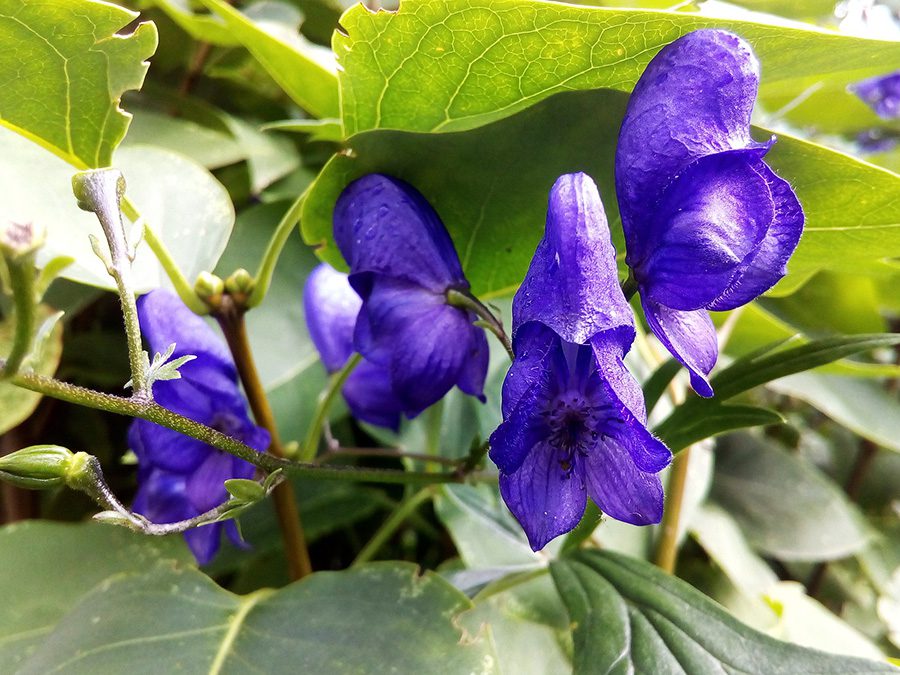
Skullcap
Skullcap (Scutellaria laterifolia) is a relaxing nervine, a mild sedative as well as being a nervine tonic. Skullcap nourishes the nervous system if used over the long term yet over the short term it will relieve anxiety, insomnia and nervous tension. It can be used during the day to restore balance to an overwhelmed and overworked person whose nerves are fried. I give it to people who are on edge as if they will “fly off the handle” and for people close to nervous exhaustion. Skullcap is also an antispasmodic herb that will relax muscles and help those suffering from nervous twitches, tics and headaches.
Herbalist Paul Bergner says a strong tea of skullcap is more sedative and hypnotic than the tincture and will make you drowsy. Skullcap is another herb that is best tinctured fresh or used recently dried in teas for best effect.
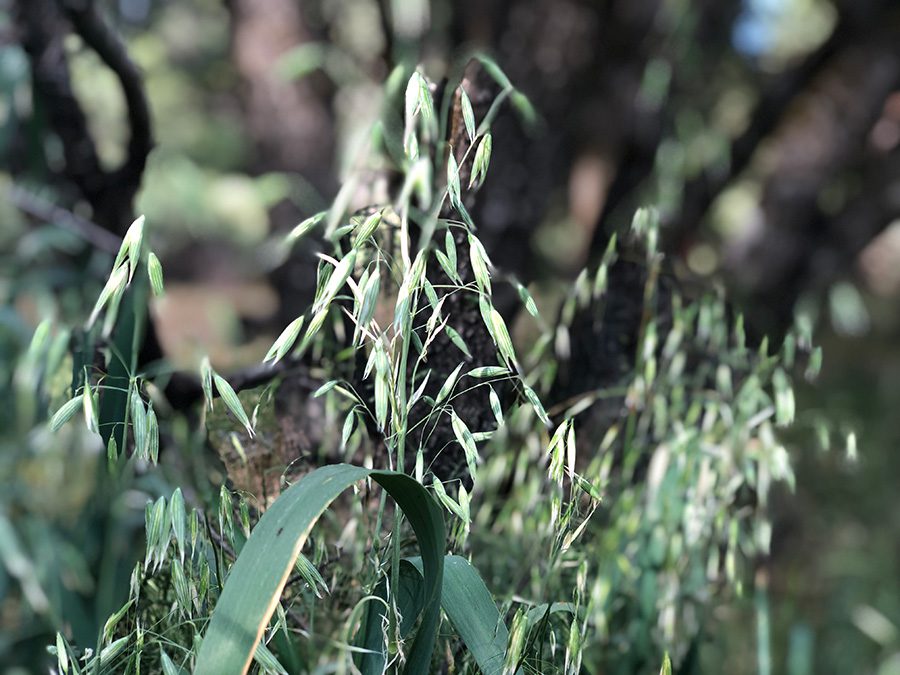
Milky Oats
Oats (Avena sativa) have traditionally been used to fortify the nervous system. Oat tops harvested in the “milky” stage are said to be the most effective as a nervous system trophorestorative. A trophorestorative herb brings balance by nourishing a particular organ or system. Trophorestoratives can be safely used over the long term to restore normal function. Fresh oat tops harvested in the milky stage have traditionally been used in herbalism for nervous debility, shattered nerves and exhaustion. Oats will nourish the nervous system after a period of prolonged stress and anxiety.
Adaptogens
Adaptogens are a class of herbs that help our minds and bodies cope with stress, improve stamina and restore balance. All adaptogens support immune system function and are tonics that can be taken daily to support overall health without harmful side effects. In general, adaptogens have many positive health enhancing benefits but there is one caveat…
One of my herbal teachers, Dr. Sue Evans, always warned us about using stimulating adaptogens to prop ourselves up with “false” energy. Using stimulating adaptogens long term while our foundational vitality and energy reserves are depleted can set us up for collapse. Jim McDonald likens the indiscriminate use of adaptogens to racking up a huge credit card debt, sooner or later you have to pay the price for spending more than you have in reserve. To learn more about adaptogens please see this post https://remedygarden.com/what-are-adaptogens/
Ashwagandha
Ashawagandha (Withania somnifera) is a calming adaptogen that pairs nicely with many of the relaxing nervine herbs listed above. It is very effective at relieving anxiety, fatigue, foggy brain, stress related insomnia and nervous exhaustion. It is traditionally used in Ayurvedic Medicine for its powerful rejuvenative properties. I love ashwagandha because it is not overly stimulating, nourishes the nervous system and increases our overall resilience in times of stress.
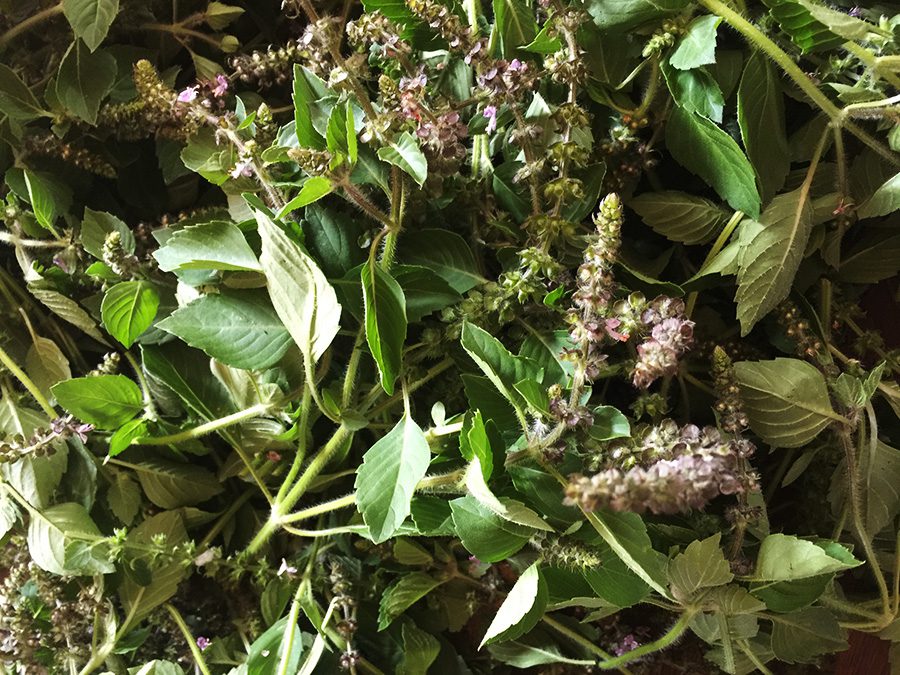
Tulsi
Tulsi or holy basil (Ocimum sanctum) is a mild adaptogen that is also helpful for anxiety and stress relief. Tulsi is a sacred plant in India, where many households have a pot of this herb by their front door to guard against evil. In Indian folk medicine the leaves of the plant are brewed in a tea that is used as an expectorant for bronchial congestion or bronchitis.
Tulsi is also anti-viral and anti-bacterial and used for colds and flu. Finally, tulsi is a plant that uplifts the spirits and has an anti-depressant action. Herbalist David Winston uses it in “stagnant depression” where a person is fixated on a specific traumatic event and complains of fatigue and mental fog, for this he combines Tulsi with St John’s Wort, Lavender or Rosemary.
Schisandra
Schisandra (Schisandra chinensis) is known as the “five flavor” berry in Chinese as it contains all five flavors of sweet, sour, pungent, bitter and salty. In Traditional Chinese Medicine it is used to “astringe the jing” and controls excess fluid loss through night sweats, diarrhea or urination.
Schisandra is an adaptogen that “calms the spirit” and is helpful for people suffering from stress induced palpitations, insomnia arising from deficiency, anxiety and bad dreams. Schisandra is also known for its liver protecting properties and is used for wheezing and asthma in respiratory conditions.
Conclusion:
At times like these, it’s comforting to know that we have plant allies that humans have been relying on for thousands of years to help them through the stresses and challenges of life. This is by no means an exhaustive list and I encourage you to use what you can obtain locally in abundance. Many of these herbs are in the mint family and can easily be grown in a home herb garden. With global commerce at a standstill, it seems more important than ever before to turn to local plant medicines for our health care needs. My goal is to empower as many people as possible to grow, use and learn about herbal medicines in these uncertain times. I wish everyone tranquility, good health and a restful night’s sleep.
In gratitude for the plants,
Jahwei xo
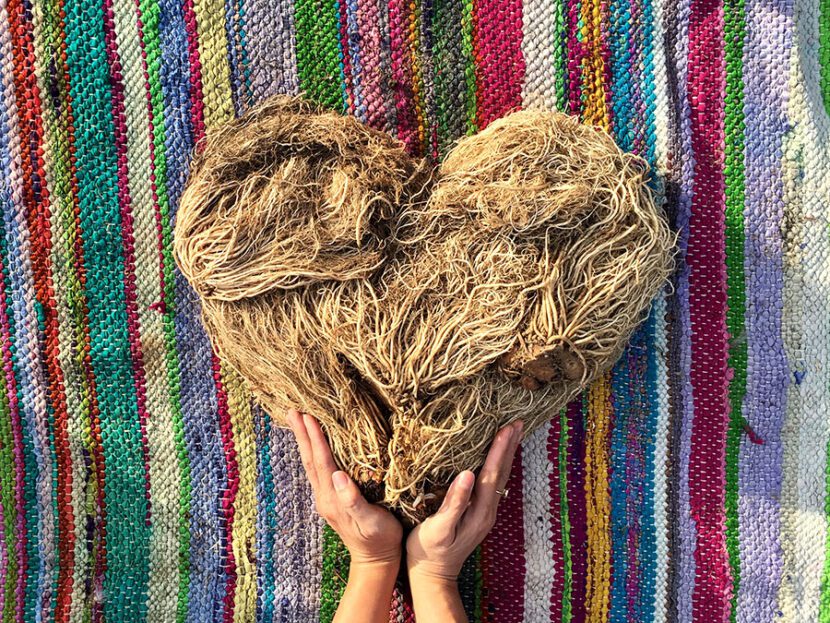
One thought on “Herbs for Anxiety and Insomnia”
Thank you for sharing so much information… I am going to plant several of these plants in my healing garden… a garden space dedicated to friends and family that have passed on. I have people’s favorite plants growing, my thinking is they were planted in memory of, watered by tears, warmed in the sun.. and when I send someone a picture of the blooms dancing in the wind .. it creates a healing moment. The blooms are given as gifts, used in paper making and included in art journals …
Comments are closed.